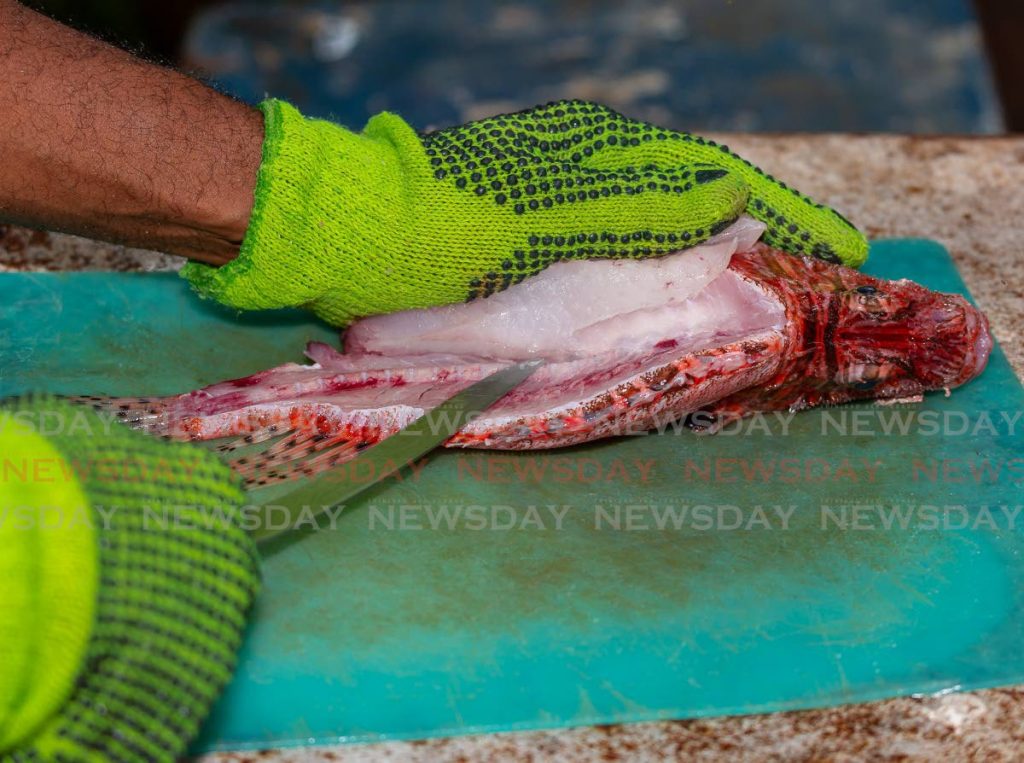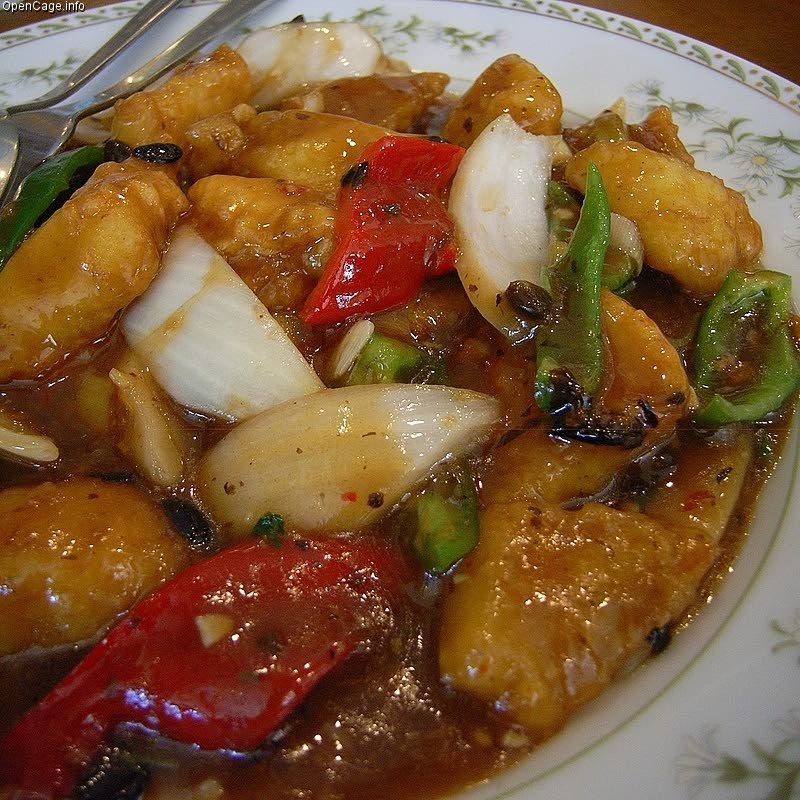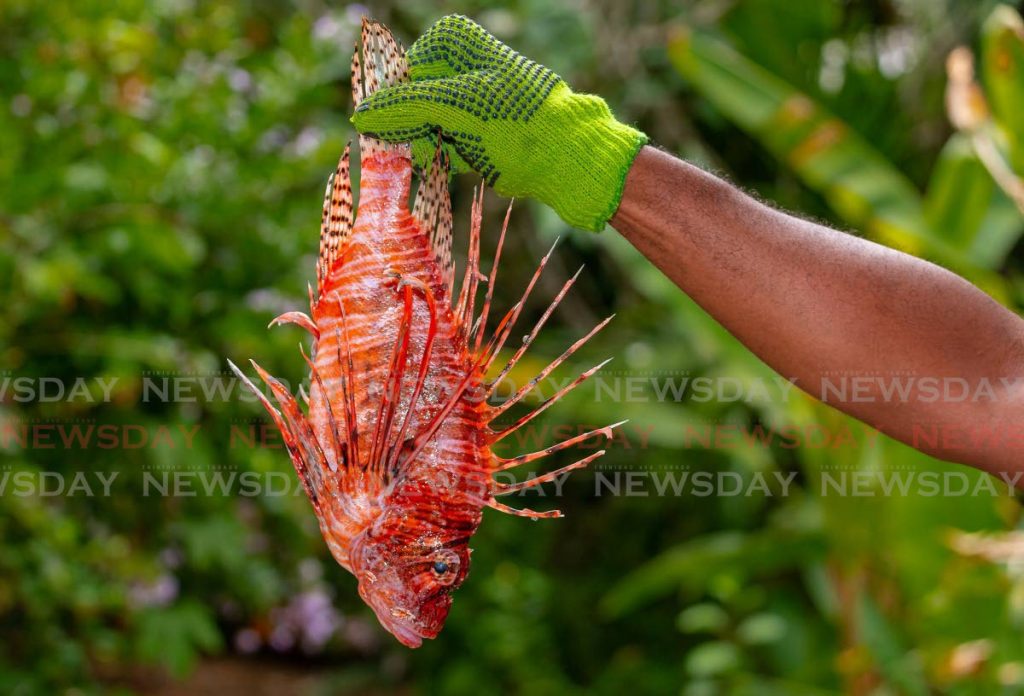Tobago fisherman: Eat lionfish to save the reefs

Lionfish, an invasive species in the Atlantic and Caribbean Sea, is a threat to the marine ecosystem.
Native to the Indo-Pacific, the lionfish devours over 80 types of prey who do not recognise it as a predator.
However, there is one way lionfish numbers can be reduced immediately– by eating them.
Some say, they make a delectable dish.

Tobago-based scuba diver John Procope is now doing his part to help control the species, by hunting and processing the tasty fish that is wreaking havoc on the island’s coral reefs. Procope said if decisive action is not taken, the reefs in Tobago could be decimated.

In an interview with Newsday on Tuesday, Procope gave a brief history about the lionfish.
He said: “Lionfish arrived in out territorial waters, we believe, around 2010. Ever since then, the numbers have been growing steadily. We started seeing them one-one and at first it was like wow, but then very early on we became aware of what was happening.
"The thing is, we have an opportunity to learn from all of the Caribbean islands that are north of us in the archipelago and of course from Florida, because that is where it all began. They started seeing concerning numbers of lionfish.”
He said there were isolated sightings in the late 90s, because the lionfish was the most popular exotic saltwater aquarium pet choice in the US.
It is believed the lionfish was introduced into the ecosystem in the Western Hemsiphere during Hurricane Andrew in 1992, when a broken aquarium released them into Florida’s Biscayne Bay.
Having gained a footing in the reefs of Tobago, lionfish have spread at an alarmingly rate. Procope said a single female will spawn some two million eggs annually with hatchlings becoming sexually mature in a year.
“Lionfish, within a five-year period, once their population has exploded, are able to decimate the numbers in the juvenile marine tropical fish that live on the reef all around Tobago. You then have marine tropical fish infants who are not able to make it to maturity – the growth cycle is cut. And after they’ve been decimated in the five years of the lionfish population explosion, the next three years what happens is that all of the reefs around Tobago will die.
"This is not a prediction, this is all backed up scientifically and it’s happened in other countries, for example Jamaica.”
He added: “Once the reefs have died, what really is the most terrible part of it is the fact that we would lose food security for our nation. After the three years of the reefs dying, the entire spawning system, the mangrove, is going to be gone, therefore we would lose kingfish, we would lose mahi mahi, we would lose barracuda, snapper, grouper, lobster, crab – we would lose everything and we would become after approximately three years, a nation that would have to import fish.”

Could the solution to this lionfish invasion lie in developing a commercial lionfish industry? Procope said he is getting good support from the fisherfolk on the island.
“I am getting a lot of fishermen who do fish pod fishing, to start catching the lionfish and instead of throwing the lionfish out of the fish pods, they would call me and sell them back to me."
Procope said there has been too much misinformation about eating the lionfish.
“What we need is people to get the right information out there; for very long we’ve been spreading a lot of misinformation.

“Lionfish are not poisonous, they are venomous – there is a difference. Venom cannot affect you if you drink it, venom can only affect you if it is intravenously introduced to the bloodstream via a jook from the lionfish spine. Lionfish venom doesn’t even come into contact with the flesh at no point in time, it is stored in the spines and the only way that you can get jook from the lionfish spine is if the pointy end sinks into your flesh while the fish is alive.”
He noted, "If you clip those spines off, then it renders the fish completely harmless. The only people who are at risk are those who hunt the lionfish, like me. Lionfish hunting and preparation is for people who are aware of the dangers, know how to avoid them and have the relevant first aid.”
He noted that this is why the Tobago lionfish eradication project is so important.

“This is a project that I started with the help and support of a friend. We did marine biology and zoology so we had an interest in taking action, and so we wrote a Tobago lionfish eradication project mandate and I have actually submitted that to the THA department of fisheries and I am in contact with the director, Mr Garth Ottley. It has been stalled because they didn’t have funding, but the Institute of Marine Affairs (IMA) is supposed to restart the project...but the whole covid19 situation. So, we have been in touch with fisheries, and we have been in touch with the IMA.”

Comments
"Tobago fisherman: Eat lionfish to save the reefs"